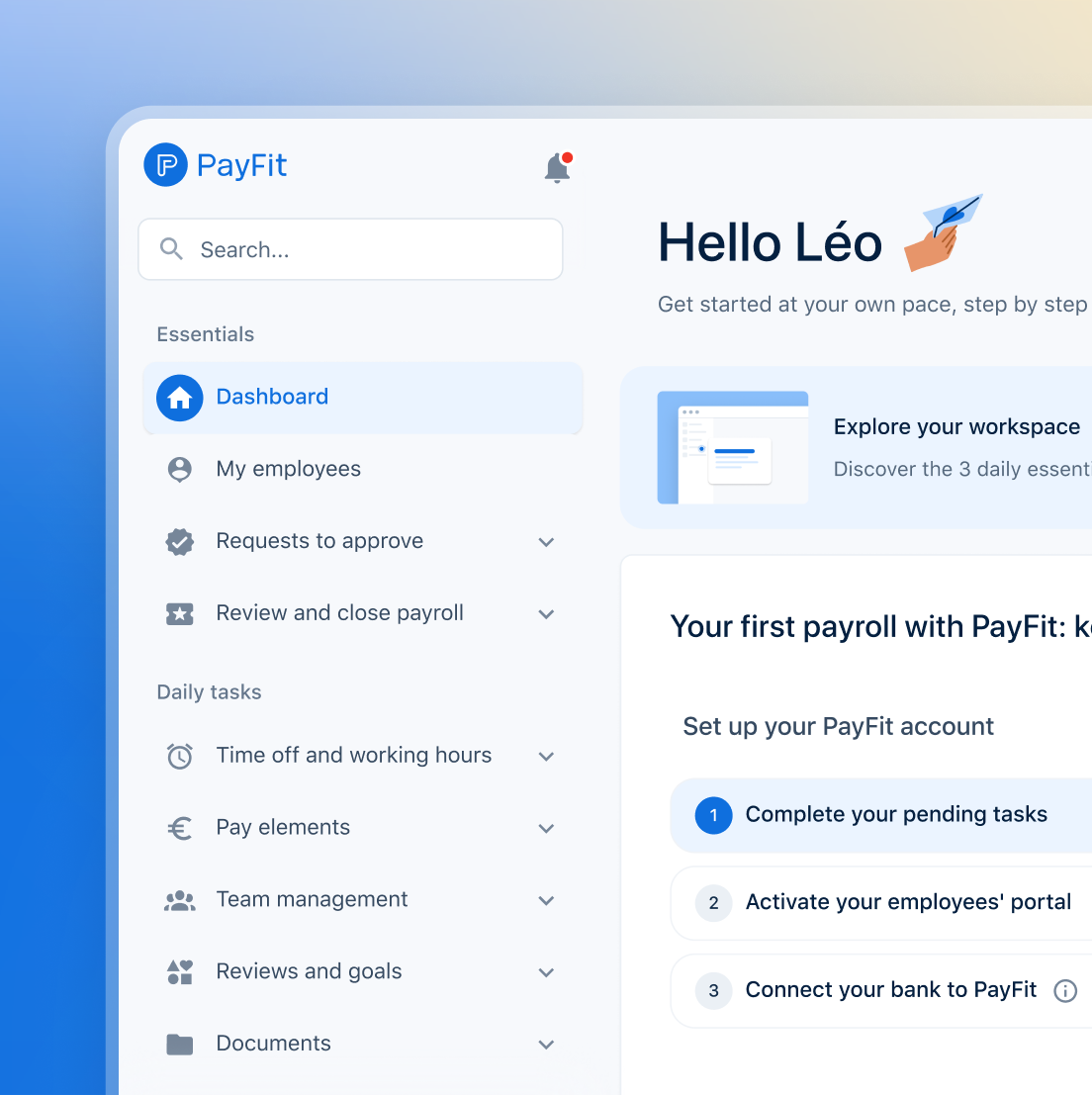✨ Health insurance, now in PayFit - learn more
💷 All the rates & thresholds you need to know for 25/26...right here
✨ The Payroll Journey: Start, Scale & Succeed Globally - learn more
✨ Health insurance, now in PayFit - learn more
💷 All the rates & thresholds you need to know for 25/26...right here
✨ The Payroll Journey: Start, Scale & Succeed Globally - learn more

Since it came into force, the Carer’s Leave Act has changed how UK employment law recognises caring responsibilities at work. In 2026, the right itself isn’t “new”: but it’s increasingly relevant as more carers balance a job alongside care for dependants, and as employers refine how they use workplace policies to support people consistently.
This guide explains what the Carer’s Leave Act means in practice today, how it affects employees and businesses, and what employers should be doing to stay compliant while supporting carers in the workplace, including where “taking leave” interacts with working patterns, coverage, and shift hours.
The Carer’s Leave Act introduces a new employment right allowing employees to take time off work to provide care for a dependant with a long-term care need.
Unlike other forms of leave, carer’s leave is unpaid, available from day one of employment, and designed to be taken flexibly, including in half-days or individual days, which can be particularly useful for carers juggling appointments, emergency changes, or irregular caring hours.
The aim is to recognise the reality that many carers have ongoing caring responsibilities, not just emergencies, and to provide a clear legal framework for managing time away from work.
An employee qualifies for carer’s leave if they provide care for a dependant with a long-term care need. A dependant may be a spouse, partner, or family member; someone who lives in the same household; or anyone who reasonably relies on the employee for care.
Long-term care needs typically relate to disability, illness, injury, or age-related conditions.
Importantly, employees do not need to provide medical evidence as part of a standard request, helping keep the process proportionate and respectful. That’s why many employers use a simple request form and train managers to read requests consistently, without asking for proof.
Employees are entitled to up to one working week of carer’s leave per year. Leave can be taken in full days or half-days, with flexibility to spread it across the year as caring needs arise.
This entitlement applies regardless of the employee’s working pattern or typical hours, and it does not reset with each caring situation, it is a single annual allowance.
From a practical point of view, the key is to define in your policy how you treat “one week” for staff with varied hours (for example, compressed schedules) and ensure managers use the same logic across teams.

Build the right HR tech stack
Employers must allow eligible employees to take carer’s leave, but they also retain some control over timing.
Employers can ask for notice (usually at least twice the length of the leave requested), and they can postpone leave if it would cause serious disruption to the business, as long as they follow the law and set an alternative time within a reasonable period.
Employers cannot refuse carer’s leave outright, treat employees unfairly for requesting or taking it, or dismiss/disadvantage an employee because they are a carer.
Handled well, carer’s leave can support retention, reduce burnout, and strengthen trust in the workplace, and it can work alongside other workplace benefits (for example, flexible schedules or employee assistance support) where employers choose to offer additional help.
| Topic | What the law says |
|---|---|
| Who is eligible | All employees, from day one |
| Type of leave | Unpaid |
| Annual entitlement | One working week |
| How leave is taken | Full days or half-days |
| Evidence required | No |
| Employer flexibility | Leave can be postponed with notice |
| Protection | Employees are protected from detriment |
The Act forms part of a broader shift in UK employment law toward recognising real-life responsibilities outside work.
Many employers are already aligning carer’s leave with flexible working arrangements, hybrid or adjusted working patterns, and wider wellbeing and family-friendly policies. Building on the new flexible working law, these arrangements strengthen employees' right to request flexible working from day one.
Where businesses use these tools well, it can reduce unplanned absence and improve employee engagement, particularly for experienced workers balancing a job and care. Moreover, effective absence management systems help track carer's leave alongside other types of absence, providing clarity for both managers and employees while maintaining accurate records.
For carers, it also changes the tone: “asking informally” becomes a clear right, and taking time off for care becomes easier to discuss, especially when the policy is well communicated and managers know what to read for in a request.

No. The statutory entitlement under the Carer’s Leave Act is unpaid, although some employers choose to enhance this as part of their overall employee package and wider workplace benefits.
An employer cannot refuse the right to leave, but they can postpone it if taking leave at the requested time would significantly disrupt the business. The employer must give notice and suggest an alternative date, in line with the law.
No formal evidence is required. Employees must confirm that the leave is being used to provide care for a dependant with a long-term care need.
No. Carer’s leave sits alongside existing rights such as annual leave, maternity leave, paternity leave, shared parental leave, time off for dependants and bereavement leave. Each serves a different purpose, and employers may also signpost additional internal benefits and support depending on the situation.
Yes. All employees are covered, regardless of working pattern, hours, or role — just as with part-time workers' holiday entitlement, the calculation adjusts to reflect individual working patterns while ensuring fair treatment.
In practice, it’s important that managers read the policy guidance carefully and use consistent treatment across teams so carers in different jobs receive the same fair approach.

Is paternity leave 14 working days in the UK in 2026? Learn how long paternity leave lasts, who is eligible, how pay works and what notice is required.

Learn what Labour’s 4-day week plans mean in 2026, plus your options now: flexible working, compressed hours, contracts, and HR actions.

What is the Alabaster ruling? Learn how pay rises during maternity leave affect Statutory Maternity Pay (SMP) and how to calculate arrears correctly.

A guide for employers on the Neonatal Care Act, in force since April 2025. Learn about leave entitlement, pay eligibility, notice periods & the two-tier system.

A new flexible working law came into effect in 2024. Employees have more say over how & when they work. Understand what it means for you as an employer.

Our comprehensive guide on the statutory notice period for UK businesses. Understand legal minimums, contractual rights, PILON, and how to stay compliant.

See what's new in PayFit
New features to save you time and give you back control. Watch now to see what's possible